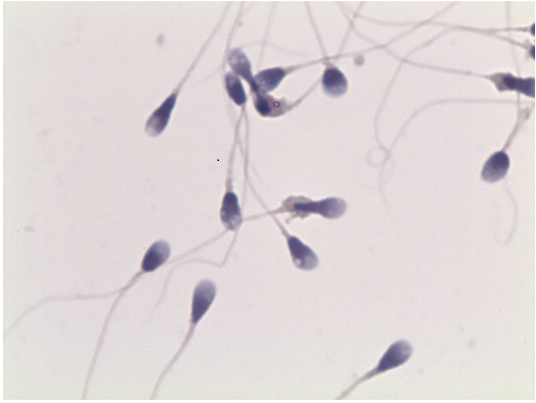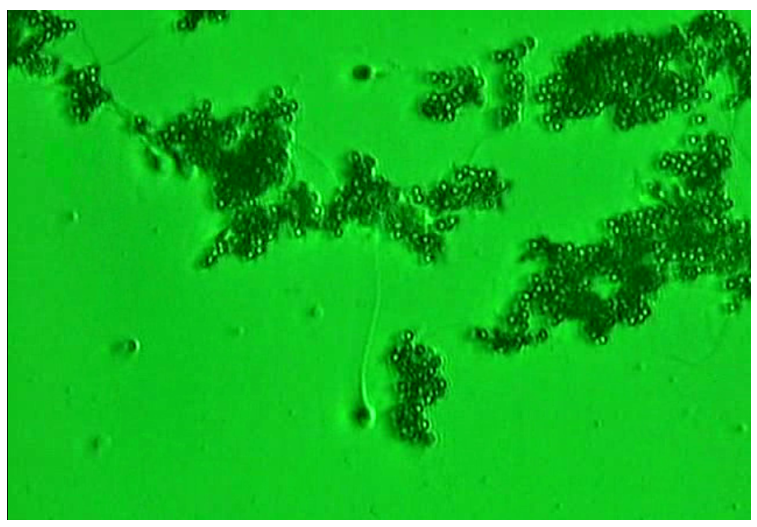According to WHO guidelines, a spermiogram contains the following parameters:
- Ejaculate volume
- Sperm concentration
- Number of sperm in total ejaculate
- Mobility
- Vitality
- Leukocyte detection (detection of inflammatory cells)
- Analysis of the shape of the sperm (morphology)

Sperm analysis
As the ejaculate quality is significantly influenced by factors such as the period of abstinence (two to five days of abstinence are ideal), illnesses in the last three months (especially with fever) and the intake of medication (especially antibiotics and painkillers), the ejaculate quality can vary greatly. It is therefore recommended by the WHO that a second spermiogram be performed three months after the first examination if the result is abnormal.
A complete spermiogram also includes immunological and biochemical analyses:
- Detection of sperm antibodies (MAR test: IgA and IgG). This is important because antibodies can cause sperm adhesions, reducing the chances of pregnancy.

IgG Positive
- Fructose determination provides an indication of the secretory function of the seminal vesicles, which influences the functional capacity of the sperm (not covered by health insurance).
- Alpha-glucosidase is a marker for the functionality of the epididymis, which also determines the fertilization capacity of the sperm (not covered by health insurance).
- Zinc is a marker of prostate functionality. Since it has an antioxidant effect, low levels may indicate oxidative cell damage. This is associated with reduced sperm quality.